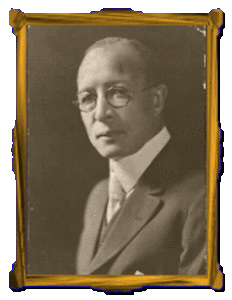
Albert Meyzeek
*Albert Meyzeek was born on this date in 1872. He was a Black educator and activist.
Albert Ernest Meyzeek was born in Toledo, Ohio, the son of John E. and Mary (Lott) Meyzeek. His early childhood years were spent in Toronto, Canada. His father, of Huguenot French ancestry, married Mary Lott, a Black woman in Chatham, Canada, then the terminal station of the Underground Railroad. Maternal Grandfather Lott, a Pennsylvanian by birth, often served on steamers traveling the rivers between Pittsburgh and New Orleans, where he saw first-hand the horrors and cruelty of slavery.
Later, settling on farms in the hilly country of Madison, Indiana, along the Ohio River. Lott, two of his former shipmates, and Henry Ward Beecher helped organize the Ohio River Underground Railroad. Many slaves that escaped along the roads were carried on the backs of these powerful men to hiding places on their farms or were hidden and fed in the grottoes, dells, or caves surrounding Madison. The Rev. Beecher related many incidents of drowning and freezing while crossing the river to his sister Harriett Beecher Stowe, who gave exciting descriptions of these feats in her book Uncle Tom’s Cabin.
Young Meyzeek’s mind was greatly influenced by the stories of adventure related to his grandfather Lott who later escaped arrest in a Louisville jail by the same underground route. Meyzeek’s grandmother gave up the Lott farm and traveled with her children in disguise by the same route to Chatham, Canada, where they continued to receive runaway slaves. Ironically, this descendant of an Underground Railroad operator would make Louisville his permanent home. Meyzeek’s father was a vigorous agitator for justice and equal educational opportunities. He won two suits against the Indiana School Board to abolish unhealthy and inadequate separate schools.
In Louisville, young Meyzeek showed the same fighting spirit as his forefathers. After graduating with valedictory honors from the old Terre Haute Classical High School, where he was the only “colored” student, Meyzeek’s first ambition was the law. Thinking that success at law might be doubtful, Meyzeek entered the Indiana State Normal School for teacher training and later won a Bachelor's degree from Indiana University; and a Master's degree from Wilberforce University in Ohio.
In Louisville, he passed a competitive examination for principalship and was sent to direct Booker T. Washington elementary school. A few years later, he was temporarily assigned as principal of Central High School. Meyzeek, concerned about the lack of adequate reference and reading materials at his school, boldly took his students to the Polytechnic Society Library, where after a few visits, they were refused admittance. Outraged by his students’ humiliation, Meyzeek met with the library board and persuaded them to provide a “colored” branch library with funds already pledged by the wealthy industrialist Andrew Carnegie. In 1905, he founded the Western Library of Louisville. Meyzeek was different from some other Black leaders in Louisville at the time.
He charted a very independent course. After Reconstruction was the age of Booker T. Washington when accommodating segregation to make racial progress, particularly on economic terms, was the gospel that Washington preached; and what whites in power wanted to hear. While he might sometimes be willing to accept compromises, Meyzeek saw that segregation was the problem. Meyzeek was much more in the vein of W.E.B. DuBois and Frederick Douglass.
He believed that power conceded nothing without a demand. So Meyzeek persistently and persuasively agitated for equal access and opportunities. He was a member of Kentucky's State Board of Education from 1948 to 1956. One way or another, most of his efforts focused on bringing children into a new era and breaking down barriers in Louisville. Albert Meyzeek died in 1963.